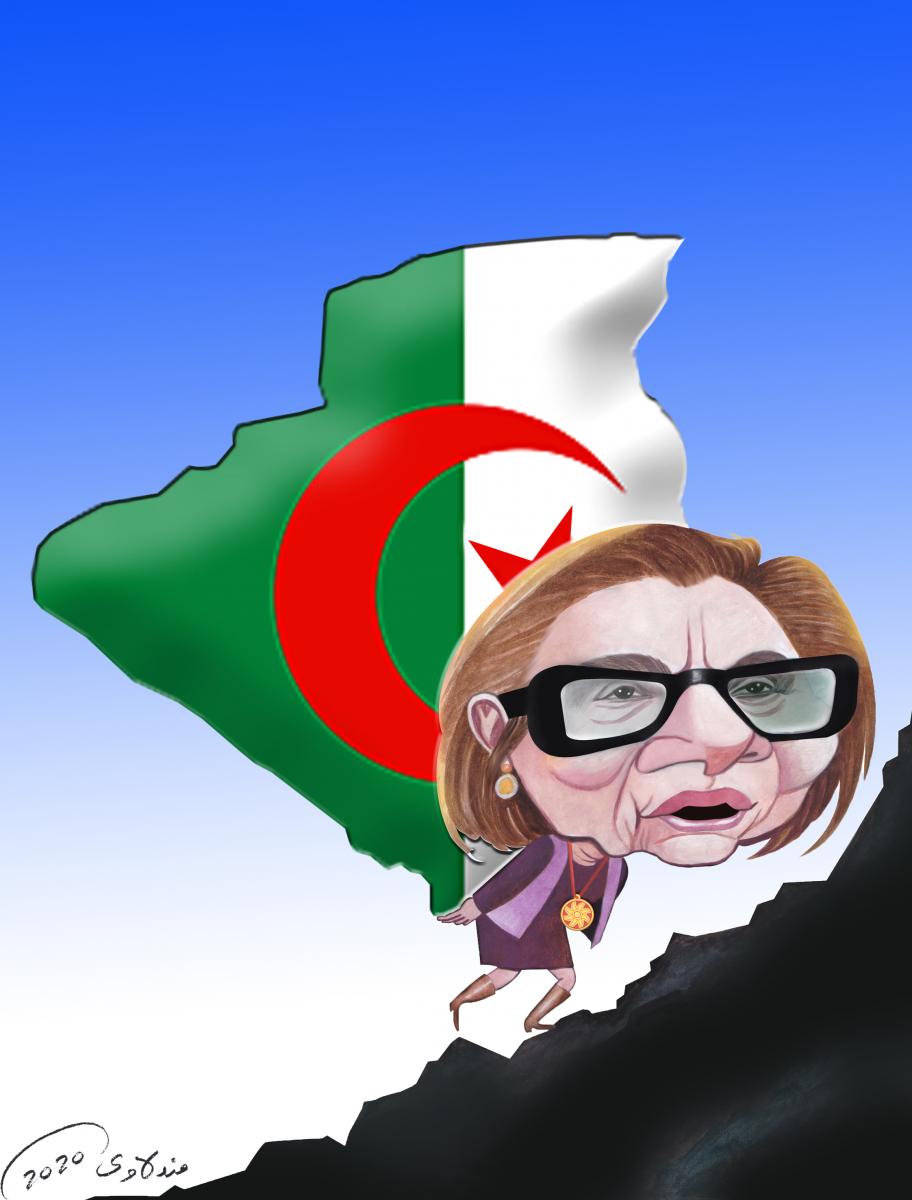
Djamila Bouhired is a nationalist and guerrilla fighter who opposed French colonial rule in Algeria. She was born in 1935 to a Tunisian mother and an Algerian father and was raised in middle class family. While staying at a French school in Algeria, she discovered her revolutionary spirit. When children would repeat every morning “France is our mother”, Bouhired would stand up and scream “Algeria is our mother!”
At age 20, she started her national activism against the French colonization when the revolution broke in 1954 after 130 years of French occupation. She worked as a liaison officer and personal assistant to FLN commander Yacef Saadi in Algiers, and was he first to volunteer to plant bombs on roads used by the French military occupation.
In 1957, before a large planned demonstration in the Casbah, she was captured by the French. According to her personal of account of her incredible story, she was tortured for 17 days to force her to reveal information about the FLD leader, but she refused
In the July of the same year, Bouhired was tried for allegedly bombing a cafe, alongside another Algerian freedom fighter, Djamila Bouazza, aged 19. The bomb killed 11 civilians inside. At the time the French lawyer Jacques Vergès, sympathetic to the cause of the Algerian nationalists, heard of her case and decided to represent her. In what would be a historic trial, Vergès accused the government of themselves having committed the acts charged in his defense, waging a public relations campaign on her behalf. Despite his efforts, she was convicted and sentenced to death by the guillotine.
Vergès co-wrote a plea against the decision to sentence Bouhired to death. Meanwhile, many groups formed throughout Algeria and abroad to convince the government to drop the death sentence. Most notably, princess Laila Ayesha of Morocco contacted the President of France at the time, René Coty, and asked that Bouhired be spared. They agreed and Bouhired served a prison sentence in the Reims prison until 1962. As the end of the war drew near, she was released along with many other Algerian prisoners.
Vergès claimed to have become a target of the French colonial government, which allegedly launched several failed assassination attempts against him, including a bomb planted in his apartment and another in his car. Bouhired and Vergès were married a year after Algeria's independence, by which point Vergès had converted to Islam and taken the first name Mansoor. The couple had two children, Meriem and Liess Vergès. The couple also established established Révolution africaine, a publication that focused on Pan-Africa and African nationalism movements. Bouhired separated from Vergés in 1970, after 7 years together. She became chairwoman of the Algerian Women Association in independent Algeria, and was constantly at odds with then-Algerian President Ahmed Ben Bella.
Bouhired was one of the many women fighting for emancipation and equality in the newly independent Algeria. However, economic downfall and exponential population growth caused a rise in Islamic fundamentalism, which coupled with new laws allowing for a multi-party political system ultimately resulted in civil war. Equality for women was not a priority of the government throughout this period in Algerian history. Nonetheless, Bouhired will forever be known for her work not just for Algerian independence, but also for women's rights in Algeria and the Middle East.
Bourhired was depicted in the 1966 film The Battle of Algiers. She was also depicted in the film Jamila, the Algerian (1958) by Egyptian director Youssef Chahine and in Terror’s Advocate, a documentary film about Jacques Vergès.
Djamila Bouhired resides in the capital of Algeria, Algiers, and continues to be a militant for several causes of which she participates in protests and marches, including the 2019 Algerian protests.







